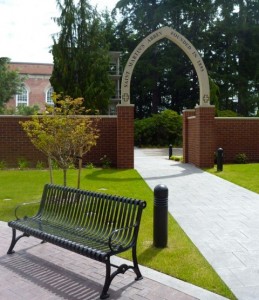Submitted by Saint Martin’s University
 Saint Martin’s University introduces minors in French and physics for the academic year 2015-2016.
Saint Martin’s University introduces minors in French and physics for the academic year 2015-2016.
These minors were approved by the University’s Board of Trustees and the Northwest Commission of Colleges and Universities. They bring the total number of minors offered at Saint Martin’s to 28.
The French minor emerged from growing student interest over the years. In the past, students had to design their own study of French, typically through directed study courses; now, students can earn the French minor, which is 21 credits and includes courses such as French Literature and French Cinema. In addition, students can count their study abroad in a French-speaking country towards the minor.
“Language in general is critical to students’ understanding,” says Kathleen McKain, professor of French and director of the minor. “People talk about global awareness and global citizenship but language plays a critical role in understanding the world.”
The French minor is interdisciplinary and compels students to think critically about the world. It also contributes to students’ human development—as students struggle to learn a language, they gain a greater sense of empathy for people who are learning English. The French minor complements virtually any area of study; it increases students’ cultural awareness and makes them more competitive in the job market.
The physics minor stemmed from the growing number of upper-division physics classes offered by the university. Stephen Parker and John Weiss, professors of physics, began the application process for the minor a year ago, presenting their idea to the faculty, the administration and the Saint Martin’s University Board of Trustees.
The physics minor consists of 34 credits, including a 2-credit capstone project that allows students to explore an area of interest to them. Although the physics minor is especially useful for mechanical engineering students, it isn’t just for engineers. A wide variety of students can benefit from the problem-solving skills that are central to physics.
“Physics isn’t just useful knowledge,” explains Weiss. “It’s a way of approaching problems.” Physics challenges students to think outside the box. Rather than plugging in numbers to solve a problem, students must take the ideas and concepts learned in class and develop their own solutions.


















































